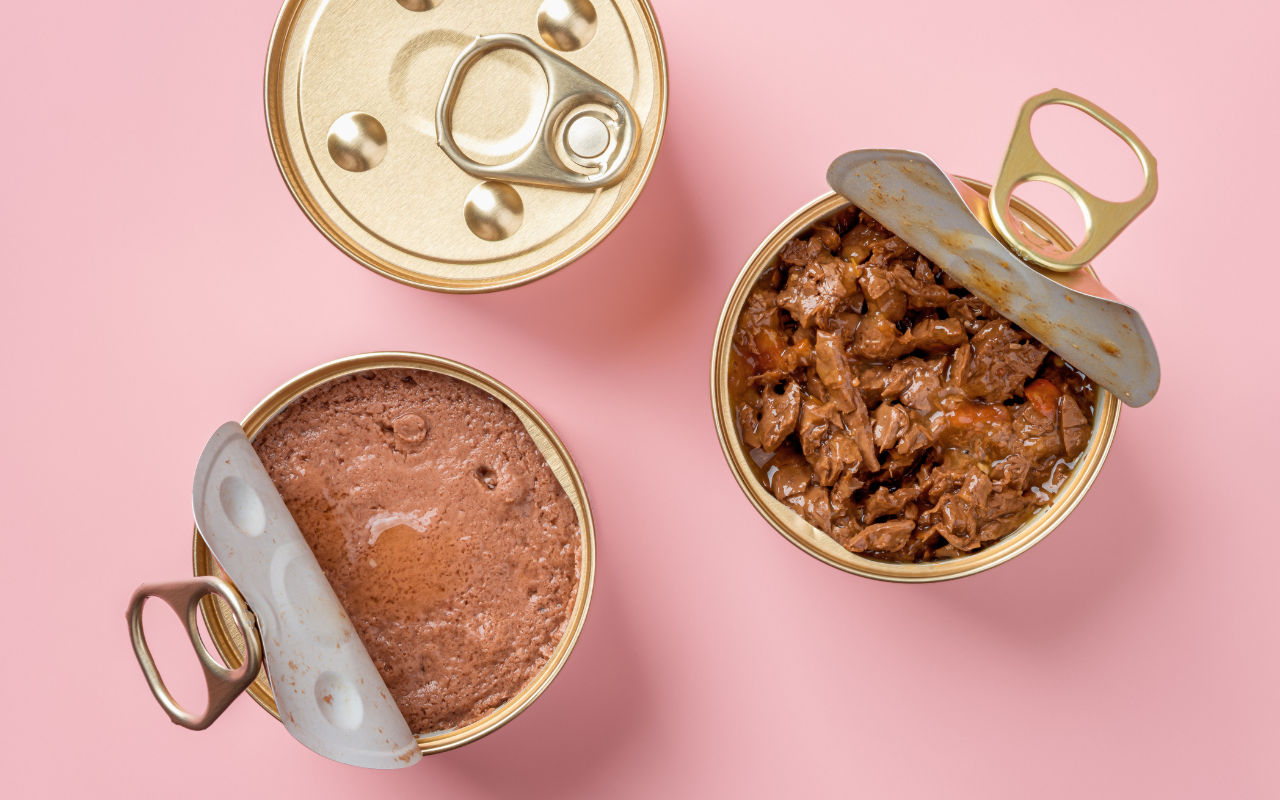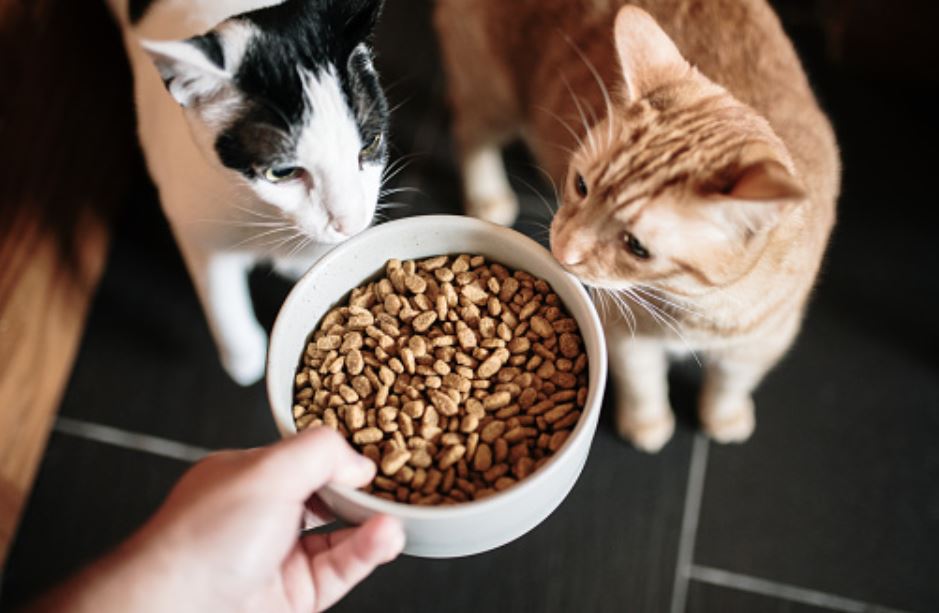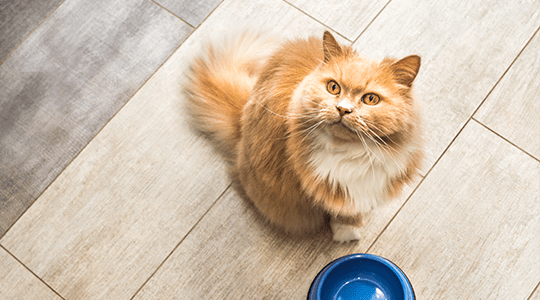Ensuring Purrfection: Cat Food Safety Tips
Anúncios
Because we love our cats, we want the best for them, and that starts with what they eat. Choosing the right food and making sure it is safe is important for your cat’s health. This article discusses some important steps you can take to ensure your cat’s diet is always perfect.
1. Read Labels
When choosing cat food, it is important to read the labels. Avoid items with fillers, artificial colors or too many preservatives, and look for items with high-quality ingredients. Choose foods with real meat as the main ingredient. This ensures that your cat gets all the nutrients it needs to live a healthy life.
2. Store Food Properly
Both dry and wet cat food should be stored in a cool, dry place. Store dry cat food in jars with lids so that it does not spoil or lose its nutritional value. Store unused quantities of canned cat food in the refrigerator to prevent spoilage. Always check the dates on food and store it according to instructions to maintain freshness.
3. Change Cat Food Brands
It’s fun to find a brand of cat food that your pet likes, but it’s also fun to alternate between a few good names. This provides your cat with a wide range of nutrients and prevents him from becoming too dependent on one source. Discuss with your veterinarian which rotation plan is best for your cat, based on his specific nutritional needs.
4. Pay Attention to Portion Size
Keeping your cat at a good weight is very important for his health. Follow the feeding instructions on the cat food package, but vary the amount based on your cat’s age, weight, and activity level. Don’t eat too much, because excess weight can lead to many health problems.
5. Staying Hydrated is Important
It is often said that cats do not drink enough water, so it is important to feed them wet cat food. Moisture helps them stay hydrated, which is good for kidney health and prevents urinary tract problems. You may also want to keep a fresh bowl of water nearby to encourage him to stay hydrated.
6. Visit Your Vet Regularly
Make sure your cat gets regular veterinary checkups to keep a close eye on his health and nutritional needs. A professional can give you specific information about your cat’s age, breed, and any health problems. This way you know for sure what to feed them and how to care for them.
7. Take Allergies into Account
Just like humans, cats can be allergic to certain foods. Watch for signs of an allergic reaction, such as excessive itching, vomiting, or behavioral changes. If you think your cat has allergies, talk to your vet to find out what’s causing the allergies and how to feed your cat food that meets his nutritional needs.
8. Changes in Your Diet Over Time
Gradually switch to new cat food or introduce new foods to your cat. Sudden changes in diet can cause stomach upset. Start by mixing a small amount of the new food with the old food. Slowly add more new foods over a week or two. This way your cat can get used to the new taste without putting too much strain on the digestive system.
9. Eat Homemade Snacks in Moderation
There are many cat treats on the market, but some cat owners prefer to make their own. If you want to prepare treats for your cat at home, make sure what you use is safe for him or her. Small pieces of cooked meat or fish are a common delicacy at home. But only small snacks should be given every day. Treats should be added to your cat’s diet and should not replace important nutrients from the main meal.
10. Consider Age-appropriate Foods
As they get older, your cat may need different foods. For example, older cats may do better with cat food formulated to address issues associated with age, such as joint health and slowed metabolism. Talk to your vet to find out which diet is best for your cat at this stage of his life.
11. Check the Weight and Change if Necessary
Monitor your cat’s weight and change the diet if necessary. Weight changes may indicate a deeper health problem or the need for dietary changes. Maintaining a healthy weight is important to prevent your cat from developing health problems associated with being overweight and to promote a healthy, busy lifestyle.
Conclusion
All in all, ensuring the purity of your cat’s diet requires a comprehensive approach. When you choose cat food carefully, store it properly, and pay attention to your cat’s specific needs, you can help it stay healthy. Remember that a cat that is fed and cared for is likely to be happy and have more energy. Be careful, learn as much as you can, and enjoy the process to give your cat the best satisfaction.
FAQs
1. How do I know if a certain cat food is making my cat sick?
Watch for signs of allergies, such as excessive itching, vomiting, or behavioral changes. If you see these symptoms, you should talk to your vet to find out what the problem is and find another cat food that is right for your pet.
2. Should opened cans of wet cat food be placed in the refrigerator?
Yes, you should store leftover canned cat food in the refrigerator to prevent it from spoiling. Storing food this way keeps it fresh and prevents the growth of dangerous bacteria.
3. Can I make treats for my cat at home? Which items are safe?
In short, yes, you can make your snacks. Small pieces of cooked meat or fish are safe choices. Treats should be part of your cat’s diet and not a substitute. So make sure he eats the right amount.
4. How often should I change cat food?
Discuss with your veterinarian which rotation plan is best for your cat, based on his specific nutritional needs. Switching between high-quality cat foods can provide your cat with a wide range of nutrients and prevent him from becoming too dependent on one source.
5. What food should I give my cat based on its age?
As they get older, your cat may need different foods. Older cats may do better on a diet that is carefully formulated to correct problems that arise with age. Talk to your vet to find out which diet is best for your cat at this stage of his life.
6. How can you monitor your cat’s weight and change the food if necessary?
Keep a close eye on your cat’s weight and change the diet if this changes. Weight changes may indicate a deeper health problem or the need for dietary changes. Keeping your cat at a healthy weight is important for his health and well-being.
malik
Publicado em: 25/12/2023





